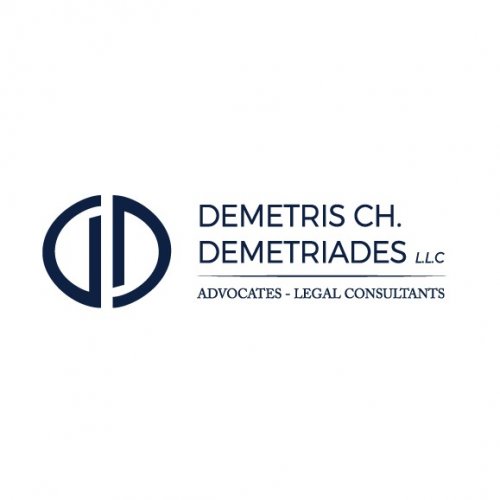Best Sanctions & Export Controls Lawyers in Nicosia
Share your needs with us, get contacted by law firms.
Free. Takes 2 min.
List of the best lawyers in Nicosia, Cyprus
About Sanctions & Export Controls Law in Nicosia, Cyprus
Sanctions and export controls are essential regulatory frameworks used by governments to restrict or regulate the movement of goods, services, technology, and capital across borders for various reasons, primarily national security, foreign policy, and compliance with international obligations. In Nicosia, Cyprus, these laws are significant due to the country's strategic location and status within the European Union. The Cyprus government implements a range of sanctions, including those mandated by the United Nations and European Union, and enforces export control measures to ensure that sensitive goods and technology do not reach prohibited destinations or entities.
Why You May Need a Lawyer
Navigating sanctions and export controls regulations can be highly complex. Individuals and businesses in Nicosia may require legal assistance for several reasons. Common scenarios include:
- Ensuring compliance when importing or exporting goods and technologies - Understanding which goods, transactions, or clients are subject to restrictions - Responding to government investigations or audits regarding sanctions violations - Representing clients in proceedings if accused of breaching sanctions or export controls - Applying for necessary licenses or authorizations - Drafting or reviewing contracts to ensure they do not result in prohibited activities - Advising on best practices to minimize risk exposure regarding international trade Legal guidance can help prevent costly penalties, reputational damage, and interruption of business activities.
Local Laws Overview
Cyprus, as an EU Member State, is bound by both domestic and European Union laws on sanctions and export controls. The Ministry of Finance and the Ministry of Energy, Commerce and Industry are primarily responsible for enforcement and oversight. Cypriot laws cover the export of dual-use goods (items that can have both civilian and military applications), military goods, and technologies. There are legal obligations for individuals and businesses to comply with restrictions concerning countries or entities subject to international sanctions. Violation of these laws can lead to significant civil and criminal penalties, including fines and imprisonment. Regular updates to regulations-especially as the global political environment shifts-mean that both businesses and individuals must remain vigilant to ensure ongoing compliance.
Frequently Asked Questions
What are sanctions and how do they apply in Cyprus?
Sanctions are legal measures imposed by governments or international organizations to restrict activities with certain countries, entities, or individuals. In Cyprus, EU and UN sanctions are directly applicable, and additional national measures may also be enforced.
What are export controls?
Export controls are rules regulating the transfer of specific goods, software, and technology to foreign countries or nationals. These controls often cover military items, dual-use goods, and sensitive technology.
Who enforces sanctions and export controls in Cyprus?
The Ministry of Finance, the Ministry of Energy, Commerce and Industry, and other relevant authorities such as the Customs Department, are responsible for enforcement in Cyprus.
How do I know if my goods or services are subject to export controls?
Lists of controlled goods and technologies are published by both the EU and Cyprus authorities. Legal counsel or specialized compliance professionals can help you determine if specific items are controlled or restricted.
What are the penalties for violating sanctions or export controls in Cyprus?
Penalties for violations can include substantial fines, confiscation of goods, loss of export privileges, and even imprisonment, depending on the nature and severity of the offense.
Do EU sanctions automatically apply in Cyprus?
Yes, as an EU Member State, all EU sanctions are directly applicable in Cyprus without the need for separate national legislation.
Can I apply for licenses or exemptions?
Yes, licensing regimes exist for certain controlled transfers. Applications are managed by the relevant Ministries, and in some cases, exemptions may be granted for humanitarian or specific purposes.
How can I ensure compliance with these laws?
Businesses should implement robust internal compliance programs, conduct due diligence on customers and transactions, and seek regular legal advice to stay up to date with changing regulations.
Are there restrictions on financial transactions?
Yes, sanctions often include measures restricting financial dealings with specified individuals, countries, or organizations. Banks and financial institutions also have compliance obligations.
Who can help me if I am being investigated for a violation?
You should contact a legal professional with expertise in sanctions and export controls law as soon as possible to understand your rights and responsibilities and to effectively manage the investigation process.
Additional Resources
- Ministry of Energy, Commerce and Industry: The key governmental body handling export controls and licensing in Cyprus - Ministry of Finance: Responsible for implementing and monitoring sanctions legislation - Cyprus Customs and Excise Department: Oversees the physical movement of goods across borders - European Commission Sanctions Map: Provides up-to-date information on applicable EU sanctions - Cyprus Bar Association: For locating qualified legal practitioners in Nicosia - Chamber of Commerce and Industry Cyprus: Offers guidance and resources for businesses affected by export controls and sanctions
Next Steps
If you believe you need assistance with sanctions or export controls matters in Nicosia, Cyprus, the first step is to consult with a legal professional who is experienced in this field. Gather all relevant documents and information relating to your case or transaction before your consultation. Ensure that you regularly monitor updates from governmental authorities, as laws and regulations can change rapidly. Consider implementing internal compliance measures within your business to minimize future risks. Finally, maintain open communication with legal and regulatory advisors to ensure ongoing compliance and to address any issues that may arise.
Lawzana helps you find the best lawyers and law firms in Nicosia through a curated and pre-screened list of qualified legal professionals. Our platform offers rankings and detailed profiles of attorneys and law firms, allowing you to compare based on practice areas, including Sanctions & Export Controls, experience, and client feedback.
Each profile includes a description of the firm's areas of practice, client reviews, team members and partners, year of establishment, spoken languages, office locations, contact information, social media presence, and any published articles or resources. Most firms on our platform speak English and are experienced in both local and international legal matters.
Get a quote from top-rated law firms in Nicosia, Cyprus — quickly, securely, and without unnecessary hassle.
Disclaimer:
The information provided on this page is for general informational purposes only and does not constitute legal advice. While we strive to ensure the accuracy and relevance of the content, legal information may change over time, and interpretations of the law can vary. You should always consult with a qualified legal professional for advice specific to your situation.
We disclaim all liability for actions taken or not taken based on the content of this page. If you believe any information is incorrect or outdated, please contact us, and we will review and update it where appropriate.
















